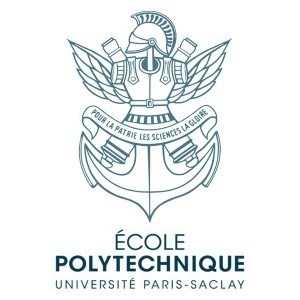Photos of university / #polytechniqueparis
The Bachelor of Science in Nuclear Engineering at the Polytechnic University offers a comprehensive and rigorous education designed to prepare students for careers in the nuclear industry, energy sector, and related technological fields. The program combines fundamental principles of physics, mathematics, and engineering with specialized coursework in nuclear reactor design, operation, safety, and environmental impact. Throughout the course of study, students gain hands-on experience through laboratory work, simulation projects, and internships, enabling them to develop practical skills essential for addressing real-world challenges in nuclear technology. The curriculum emphasizes safety protocols, regulatory standards, and ethical considerations pertinent to the use of nuclear energy and radiation. Students are also introduced to emerging technologies such as nuclear fusion, advanced reactor systems, and waste management solutions. The program aims to cultivate critical thinking, problem-solving abilities, and innovation, equipping graduates with the knowledge necessary to contribute effectively to the development of sustainable and safe nuclear energy solutions. Graduates of this program are well-prepared for employment in nuclear power plants, research institutions, environmental agencies, and governmental bodies overseeing nuclear safety and regulation. Additionally, the degree serves as a solid foundation for those wishing to pursue advanced studies or research in nuclear science and engineering. With a strong emphasis on both theoretical understanding and practical application, the Bachelor’s in Nuclear Engineering at Polytechnic University stands as a gateway to a dynamic career in one of the most vital and ever-evolving fields in modern technology.
The Nuclear Engineering program at the Polytechnic University offers a comprehensive curriculum designed to prepare students for the complex and evolving field of nuclear sciences and technology. This program emphasizes a strong foundation in physics, mathematics, and engineering principles, enabling graduates to safely and efficiently design, operate, and manage nuclear systems. Throughout the course of study, students gain in-depth knowledge of reactor physics, nuclear safety, radiation protection, thermodynamics, and materials science, essential for addressing the challenges of modern nuclear energy production and related applications. The program also explores innovative topics such as nuclear waste management, environmental impact assessment, and advancements in nuclear reactor designs, including next-generation and small modular reactors. Practical laboratory work and hands-on training are integral components of the curriculum, providing students with real-world experience in reactor operation, instrumentation, and maintenance. The program collaborates with leading research institutes and industry partners, offering students opportunities for internships, research projects, and participation in cutting-edge nuclear research. Graduates are equipped to pursue careers in nuclear power plants, research and development organizations, regulatory agencies, and consulting firms, contributing to the safe and sustainable use of nuclear energy. Emphasizing safety culture, environmental responsibility, and ethical considerations, the program prepares students to meet the current and future demands of the nuclear industry globally. Dedicated faculty members with extensive industry and research experience ensure high-quality instruction and mentorship. The academic program adheres to national and international standards, promoting a rigorous and well-rounded education that combines theoretical knowledge with practical skills. Students also have access to modern laboratories, simulation tools, and nuclear facilities, enhancing their learning environment. Upon completing this program, graduates will be well-positioned to lead innovations in nuclear technology, contribute to energy security, and support the global transition towards cleaner and more sustainable energy sources.
The Bachelor’s degree program in Nuclear Engineering at the Polytechnic University requires applicants to have completed secondary education with a strong emphasis on mathematics, physics, and chemistry. Prospective students are expected to provide proof of proficiency in the English language, typically through standardized tests such as TOEFL or IELTS, unless their previous education was conducted in English. Admission is competitive and considers academic performance, motivation letter, and relevant extracurricular activities. The program is designed to equip students with theoretical knowledge and practical skills to safely design, operate, and regulate nuclear systems. To enroll, applicants must submit an application form, transcripts, recommendation letters, and pass an entrance examination that assesses their understanding of fundamental sciences and mathematics. Once admitted, students are required to complete core courses in nuclear physics, thermal hydraulics, radiological safety, nuclear materials, and reactor physics. They must also undertake laboratory work, internships at nuclear facilities, and participate in research projects to gain hands-on experience. The curriculum includes modules on nuclear regulations and safety standards, environmental impact assessment, and waste management. Throughout the program, students are expected to develop competencies in problem-solving, technical communication, and teamwork. The completion of the degree requires earning a specified number of credits, passing final examinations, and preparing a thesis related to nuclear engineering. The program encourages participation in industry conferences and collaborations with research institutions to stay updated with advancements in nuclear technology. Graduates are prepared for careers in nuclear power plants, safety analysis, research and development, and regulatory agencies. Continuous assessment through tests, assignments, and project presentations forms a significant part of the academic evaluation. To support student success, the university provides additional resources such as tutoring, workshops, and access to modern laboratories equipped for nuclear experiments. Upon graduation, students receive a Bachelor's degree in Nuclear Engineering that qualifies them for professional practice or further postgraduate studies.
The financing of the Nuclear Engineering program at the Polytechnic University is structured to ensure accessibility and high-quality education for domestic and international students. The university offers a variety of funding options, including government scholarships, grants, and subsidies aimed at supporting talented students pursuing degrees in this specialized field. Ukrainian students can apply for government-funded places, which cover tuition fees partially or fully, depending on the student's academic achievements and social conditions. Additionally, the university has partnerships with industry stakeholders, providing scholarship opportunities for students who demonstrate exceptional promise or are engaged in research projects aligned with the nation's energy and security needs.
International students may be eligible for scholarships based on academic merit or participate in exchange programs with partner institutions. The university also encourages students to apply for external funding sources, including bilateral and multilateral cooperation grants, foundations, and international organizations dedicated to science and engineering development. To facilitate financial planning, the university offers transparent information about tuition fees, which are competitive within the region for higher education in Nuclear Engineering.
Students are advised to explore the university’s official website and contact the admissions office for detailed guidance on eligibility, application procedures, and deadlines for various scholarship programs. The institution recognizes the importance of supporting its students financially to foster the development of highly skilled professionals capable of contributing to national energy infrastructure, safety standards, and technological innovation in nuclear sciences. Overall, the financing options at the Polytechnic University aim to reduce barriers to education and enable talented individuals to pursue advanced studies in Nuclear Engineering without undue financial hardship, thereby contributing to the growth of expertise in this critical sector.
The Bachelor's degree program in Nuclear Engineering at the Polytechnic University is designed to prepare students for the complex and demanding field of nuclear science and technology. This program provides a comprehensive curriculum that combines theoretical knowledge with practical skills, ensuring graduates are well-equipped to work in various sectors of the nuclear industry, including energy production, safety management, and research. Throughout their studies, students gain a solid foundation in physics, mathematics, and engineering principles, alongside specialized courses in nuclear reactor design, nuclear safety, radiological protection, and nuclear materials. The program often includes laboratory work, projects, and internships to give students hands-on experience and a real-world understanding of nuclear systems and regulatory environments. Graduates of this program are expected to pursue careers in nuclear power plants, research institutions, or governmental agencies overseeing nuclear safety and regulation. The program emphasizes safety protocols, sustainability, and innovation, preparing students to contribute to the development of clean energy solutions, advance nuclear technology, and ensure the safe handling of radioactive materials. Additionally, students may have opportunities to participate in international exchanges or collaborative projects, enhancing their professional development and global awareness. The Polytechnic University’s facilities, faculty expertise, and industry partnerships support a high-quality educational experience, fostering the next generation of nuclear engineers committed to technological excellence and safety stewardship in the field of nuclear science.










